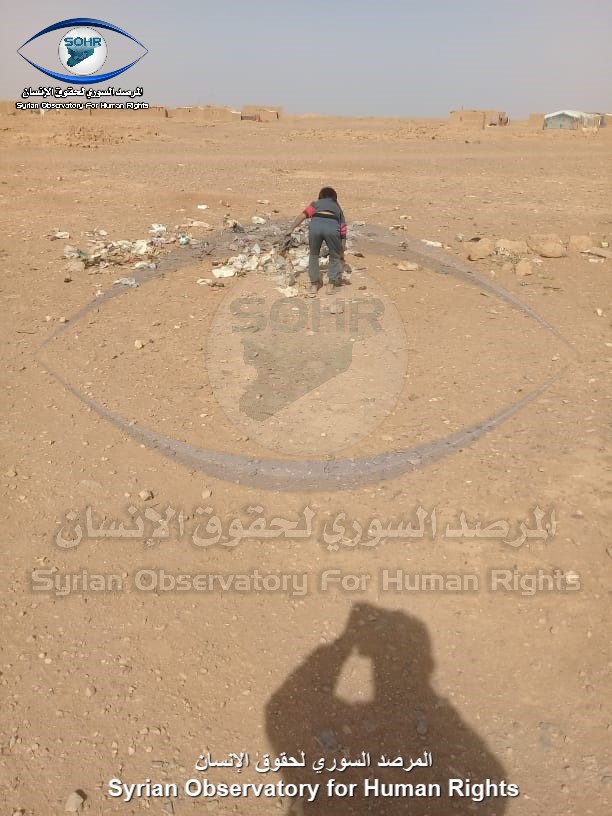Disastrous humanitarian situation in al-Rukban camp | Many difficulties and obstacles face the camp’s inhabitants to secure water
Children drop out, as many preoccupied with collecting garbage for setting fire for cooking
The inhabitants of al-Rukban camp face many difficulties and obstacles to secure water, as water is provided to the camp from artesian wells in Jordan. The water is pumped from the wells to tanks in Jordan, where it is chlorinated, before it pumped again to five other tanks, nearly 20 metre above the ground. Finally, these tanks are opened, where the water is distributed to drinking fountains near the camp, where the camp’s inhabitants fill and transport their water rudimentary.
Such obstacles have burdened the camp’s inhabitants who have already been grappling with high prices of fuel and other substances used for cooking and heating, as logs are sold in the camp for 650 SYL per kilogram, while gasoline is sold for 4,000 SYL per kilogram. These prices are unaffordable by many inhabitants in the camp, which forces children to search for flammable objects and garbage, so that they families can use them to sit fire for cooking.
These crises and dire situation coincide with the ongoing inaction and indifference by the humanitarian organizations.
In early October, SOHR sources reported that nearly 11,000 displaced Syrian civilians were suffering from disastrous situation in al-Rukban camp near the Syria-Iraq-Jordan border triangle in light of the chronic crises, dire living conditions and poor medical services. Meanwhile, the children in the camp were deprived of their basic rights, the right of education in particular, as there were no schools or effective education centres in the camp. Accordingly, most the camp’s children are illiterate and their tasks were confined to collecting flammable objects and leftovers in order to be used for getting fire for cooking instead of gas, especially with the acute shortage of gas and its high price, if found.
On the other hand, women in the camp found themselves forced to work, attempting to secure the minimum levels of basic livelihood for their families, so some women made a career of doing laundry for some of the camp’s inhabitants in return for little money.
Furthermore, the camp’s inhabitants were suffering from alarming prevalence of insects, particularly mosquitoes, due to the large number of cesspits in the camp, most of which left uncovered. In addition, all goods and foodstuffs smuggled from regime-held areas were sold in the camp for high prices unaffordable for many.
Sadly, all of these crises were met with ongoing inaction by the international community which seemed indifferent with the sufferings of the camp’s inhabitants who are besieged by the Syrian regime and its Russian ally.












